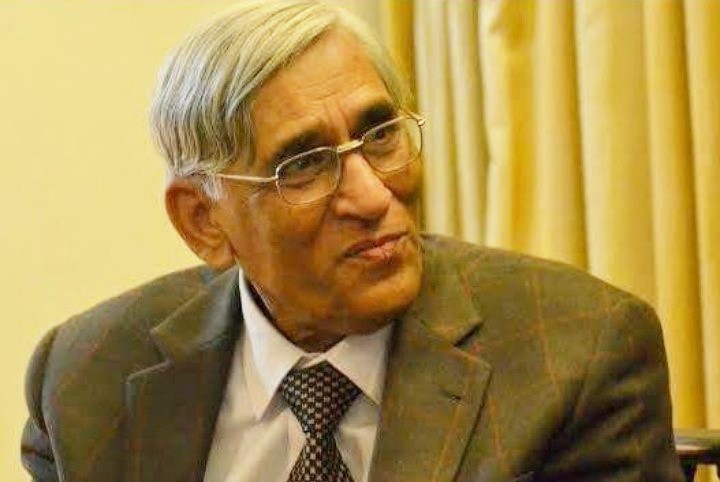After a decade of proxy skirmishes, the simmering conflict between Israel and Iran has finally erupted into a full-scale war. The stakes are higher than ever, with the looming threat of nuclear retaliation from both sides. If that nightmare scenario unfolds, the Middle East could descend into an apocalyptic disaster. The burning question now is: Should world leaders step in to cool tensions, or sit back and brace for the fallout? To shed light on this high-stakes dilemma, The Interview World spoke with Major General (Retd.) P.K. Sehgal, a seasoned veteran of the Indian Armed Forces, to get his expert take on the unfolding crisis.
In an exclusive conversation, Major General Sehgal delves into the critical flashpoints that could push the Israel-Iran conflict into even more dangerous territory. He breaks down how U.S. involvement could shift the balance of power and intensify the situation, while also dissecting the ripple effects a full-scale war would have on neighboring countries. With sharp clarity, he underscores the power of diplomacy to dial back tensions and paints a sobering picture of how large-scale conflict could devastate military operations, civilian lives, and reshape the geopolitical landscape. Here are the key insights from his compelling interview.
Q: What are the main factors that could lead to a significant escalation of hostilities between Israel and Iran?
A: Several critical factors contributed to the sharp escalation in hostilities between Israel and Iran. Foremost, Israeli Prime Minister Netanyahu’s inflated ego and the mounting pressure from Israeli hardliners (the “Ultras”) drove an aggressive stance. Diplomatic channels between the two nations broke down entirely, while the United Nations, paralyzed by internal gridlock, failed to mediate effectively.
Israel’s open defiance of Security Council recommendations further undermined international peace efforts. External powers, particularly the United States, exacerbated tensions by providing unreserved support to Israel without enforcing any checks and balances. The situation reached a boiling point when Israel launched military strikes on Iran’s nuclear facilities and energy infrastructure, with Iranian civilians also becoming targets, fueling the ongoing conflict and deepening the regional crisis.
Q: How would U.S. involvement, either directly or indirectly, affect the dynamics of an Israel-Iran war? Could international powers contain the conflict, or would they likely be drawn in?
A: From my viewpoint, the U.S. has been indirectly involved in the Israel-Iran conflict since the beginning. Although they have refrained from launching direct military strikes against Iran or its proxies—except for the Houthis—the U.S. has significantly strengthened Israel’s military capabilities. This has been done through the unregulated supply of advanced aircraft, weapons, and other military equipment, with little to no oversight or accountability.
In addition to military aid, the U.S. has provided Israel with extensive diplomatic, political, and economic support, helping solidify its position on the global stage. Moreover, the U.S. has stationed a formidable naval fleet in the Middle East, primarily to counter Iran and ensure that defensive assistance to Israel can be rapidly provided if required.
In response to the second part of the question, it is unlikely that international powers will be able to contain the conflict. This is largely due to the non-binding nature of UN resolutions, the consistent misuse of veto power by permanent members of the UN Security Council, and Iran’s deep-rooted distrust of Western motives, particularly those of the U.S. and its allies.
Nevertheless, key global players like France, Russia, the U.S., and Britain have already become indirectly involved, either by supporting Israel or aligning, to some extent, with Iran, further escalating the situation.
Q: How does Iran’s nuclear program factor into Israel’s strategic calculations? Could a military strike on nuclear facilities lead to an all-out war?
A: Israel and the U.S. view a nuclear-capable Iran as an unacceptable threat, primarily because it poses an existential danger to Israel and could destabilize the entire Middle East. If Iran succeeds in acquiring nuclear weapons, it would prompt other regional powers, such as Saudi Arabia, Turkey, and Iraq, to develop their own nuclear arsenals, igniting a regional arms race. A nuclear-armed Iran would dramatically shift the balance of power in the Middle East, increasing its influence at the expense of rivals like Saudi Arabia and Turkey.
As for the possibility of a military strike on Iran’s nuclear facilities, such an action would almost certainly lead to full-scale war. Iran has poured billions into its nuclear program as a deterrent against Israeli and U.S. dominance, and any strike would provoke a swift and devastating retaliation.
Q: What would be the impact of a full-scale war between Israel and Iran on the broader Middle East, particularly neighboring countries like Lebanon, Syria, and Iraq?
A: I would expand my response to consider the broader global implications, particularly for the Global South, the Middle East, and Iran’s key allies—Syria, Iraq, and Lebanon. Globally, supply chains would face even greater disruption, while energy prices would surge, causing a ripple effect that would raise the cost of food, fertilizers, and other essential goods. The Global South, already vulnerable, would suffer the most from these economic shocks, further diminishing growth prospects and exacerbating poverty. This crisis would also accelerate global warming, as nations scramble to meet energy needs in ways that may disregard environmental concerns.
In the Middle East, the Organization of Islamic Cooperation (OIC) and many Arab states have so far remained neutral. However, they would likely be forced to change their positions due to strong public support for the Palestinian cause and a two-state solution. Ignoring public sentiment could destabilize these nations, putting monarchies and autocratic regimes at risk.
Syria, Iraq, and Lebanon would also join the conflict, supporting Iran and its proxies, which would cause devastating economic, political, and diplomatic fallout for the entire region.
Q: In your view, what mechanisms or diplomatic channels could be leveraged to de-escalate tensions between Israel and Iran?
A: The profound distrust between Iran and the West, along with Israel’s skepticism towards Russia, China, and North Korea, creates a significant diplomatic dilemma. In this charged environment, neither side is likely to heed wise counsel from their adversaries, limiting the potential for constructive dialogue. Despite its shortcomings, the United Nations remains the only institution capable of exerting a moderating influence and facilitating communication between the conflicting parties. However, India stands out as a potential mediator, possessing the unique ability to engage both Iran and Israel. Its longstanding relationships with both sides could foster a platform for dialogue and promote stability in the region.
Q: If a large-scale conflict does break out, what do you envision as the worst-case scenario in terms of military, civilian, and geopolitical outcomes?
A: In a worst-case scenario, Iran’s emerging nuclear capabilities would suffer severe degradation. Nonetheless, the extensive dispersion of its assets, primarily housed underground, means that a significant number would likely survive. Iran’s air defense resources would experience substantial damage, along with the loss of some of its drone, missile, and rocket delivery capabilities.
Conversely, Israel would face grave challenges as many of its airbases, intelligence networks, command and control centers, and air defense systems—including the Arrow missile system, David’s Sling, and Iron Dome—would also be badly compromised. This situation would lead to a prolonged war of attrition between Israel, Iran, and its proxies, creating a complex and volatile conflict. Should the U.S., Britain, and France choose to intervene directly, their naval assets would be at risk of significant attacks, which could lead to serious and unforeseen consequences. Furthermore, if an existential threat to Israel emerges, Prime Minister Netanyahu would not hesitate to employ nuclear weapons as a last resort.
From a civilian perspective, the populations in the affected countries would endure immense suffering, particularly women and children, who are often the most vulnerable in times of conflict. A massive influx of refugees into European countries is likely, especially since Arab and Muslim nations have historically been reluctant to accept large numbers of refugees. The humanitarian crisis could lead to widespread hunger and disease.
Geopolitically, the call for a reconstitution of the UN Security Council would gain momentum. It is imperative to remove the veto power and establish a consensus-based decision-making process; however, achieving this remains unlikely. As these shifts occur, a new world order is poised to emerge, with India playing a crucial role on the global stage, influencing geopolitical dynamics significantly.









